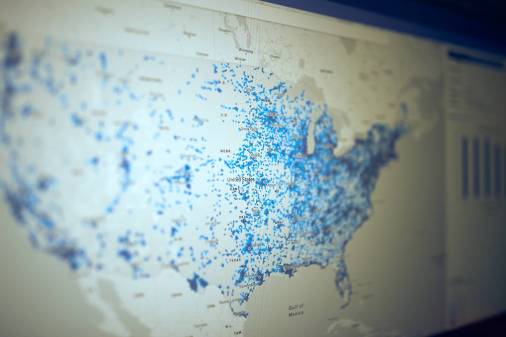Mississippi working group hunts for big data ideas

Mississippi is delving deeper into the use of data for policy solutions thanks to the recent formation of the Mississippi Data Management Working Group.
The nine-member group of government executives is tasked with the review of Mississippi state government’s databases and data accessibility. The group “shall research and report on issues related to the quality, utility and accessibility of data maintained” by the state, according to the bill, and will have authority to “establish any policies and procedures it determines are necessary and proper for the completion of its responsibilities.” The bill that created the group, which takes effect on July 1, requires the body to present a public report by Dec. 1, 2018.
Craig Orgeron, executive director of the Mississippi Department of Information Technology Services and member of the working group, said members will examine foundational issues including inventory of data assets, conflation of data across agencies, and hiring of new talent.
“The report will really address — or really put down more formally — something that we all know, which is how powerful data is and what it can do in the policy scene to solve problems,” Orgeron said.
Orgeron, who is also the state’s chief information officer, said the group’s first official meeting is tentatively scheduled for July 18. Among the first priority topics of discussion is an inventory of the state’s data. The CIO said he plans to find strategies for educating and recruiting data scientists for state jobs. The group may also examine ways to share data across agencies.
“Beyond setting the tone in this initial working group, I would imagine that the group may ponder initial kinds of things that could or should be done by looking at standardization and maybe even looking at setting up an open data portal,” Orgeron said.
Orgeron said he hopes to inform the working group on best practices and past instances of strategic data management by drawing on his experience serving on the executive committee of the National Association of State Chief Information Officers (NASCIO), where he is now secretary-treasurer and was formerly director, vice-president, and president.
Indiana’s use of data to tackle policy issues surrounding infant mortality is one example Orgeron said he plans to reference. That initiative aimed to reduce the state’s relatively high rate of 7.7 deaths per 1,000 live births using agency data. Public health is a common focus area for cities and states searching for new ways to use their data — New Orleans famously reduced its murder rate by 18 percent in part thanks to the creative use of data, and the state of Ohio is now seeking partnerships with data firms to tackle issues of opioid addiction, infant fatality and childhood hunger.
The aim, Orgeron said, is to create a report that can be easily digested by elected officials and drive change. This might include a list of three to five policy issues that could be contemplated more immediately.
While the state IT leader says that group’s goal of examining issues that can be solved with data is fairly straightforward, action by other parties will be necessary to generate change.
“You shouldn’t expect miracles just because we had a working group and talked about it,” Orgeron said. “There are going to have to be, I think, systemic changes.”
Mississippi may not follow in Indiana’s footsteps in creating a more formal office for an entity that ponders additional data and policy questions, but Orgeron says something will need to happen to “light a fire that keeps going.”
“There’s going to have to be political will that’s built to move in those directions,” he said. “And I would imagine that the inaugural report would do well to point those kinds of things out.”






